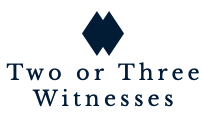Finding Jesus and Truth in the Quran
The Qur'an
A Reminder
A Reminder
...........
"He who fears [ Allah ] will be reminded". Surah 87:10
The Quran reminds us that there is a God, a God who created the Heavens and Earth in Six Days. It reminds us that there will be a resurrection of the dead on the Last Day and speaks of our need to be born again.
The Quran does not attempt to replace the Bible or alter any of its stories, nor does it question the accuracy of the Bible, it is a reminder.
The Quran has been criticised because it does not retell the stories of the Bible with the same level of detail and even misses significant bits of information, but remember, it is simply a reminder.
One example is the story of Abraham and the sacrifice of his son. The Quran gives us only a few verses about Ishmael and Isaac, so we need to read the book of Genesis to understand the story. The Quran does not mention Sarah by name or even specify the name of the son that Abraham intended to sacrifice. But it does remind us that Abraham was willing to sacrifice what he most loved.
The lack of detail is not a problem, if we recognise that the Quran is only a reminder and while we might wonder why so much is omitted, it is amazing what we can learn from the seemingly little the Quran gives us if we take the time to study it.
There is no question that the Quran identifies itself as a Christian text, what is not apparent is how it should be treated. Is it a heretical work by a Judeo-Christian sect, a random collection of writings or something much more?
Why we need it
...........
The Quran was not revealed to abrogate the previous Scriptures but to confirm them. It is a beautiful and amazing text, but do we need the Quran if we already have the Scriptures and Gospels?
The New Testament Gospels provide us with our main witness of Jesus. They present a truthful account of Jesus and his ministry and declare that he is the Messiah.
The Old Testament Scriptures give knowledge and understanding of God. They speak of the promised Messiah who was to come.
We have two witnesses of God and his Messiah, do we need a third?
The Old and New Testaments were written by many different authors, yet critics and unbelievers treat them as a single unrealiable witness and will dismiss them as false.
The Quran can be used as a thrid witness, it confirms the truth of the previous Scriptures and the Gospel and confirms that Jesus is the Messiah.
Together these three texts speak as three independent witnesses of God's truth. Two witnesses are essential but three are always better.
Importantly: the Quran challenges many of the false doctrines that had entered the Church. It attacks Adoptionism, the idea that God adopted Jesus as a son. It also speaks against Docetism, the belief that Jesus was a spiritual being and not flesh and blood. The Quran speaks against Arianism, the idea that Jesus is the son of God who was begotten by the father. And speaks also against Modelism, that God is three distinct persons or modes.
How to Read it
...........
Reading the Quran is not a simple straight forward task, but it is certainly a task worth the effort for those who persist.
The Quran, like other Semitic writings, is poetic in nature. It makes frequent use of metaphor, parable, rhyme, rhythmic structure, parallelism, paronomasia and double meanings. It is often described as rhymed prose and can appear obscure and ambiguous at times.
Since the early commentarors did not fully understand or appreciate the context in which the Quran was written, translators today miss the meaning of many of its verses and so often insert additional words and phrases to make the text fit the expectations of Muslims today.
There is also virtually no recognition that about a third of the text is underlaid by Syrian strophical Christian hymms. So when the original text is translated into English or even modern Arabic, it begins to lose its intended meaning.
It is important that we try to read a translation of the Qur'an in its literary and historical context, and watch out for the insertion of words into the text. Inserted words, such as the word Muhammad, are usually marked with brackets.
Remember, the Qur'an confirms the previous scriptures and the Gospel and praises Believers. And since the word Christian does not appear amywhere in the orginal text of the Quran, we should not expect to find it in any translation.
